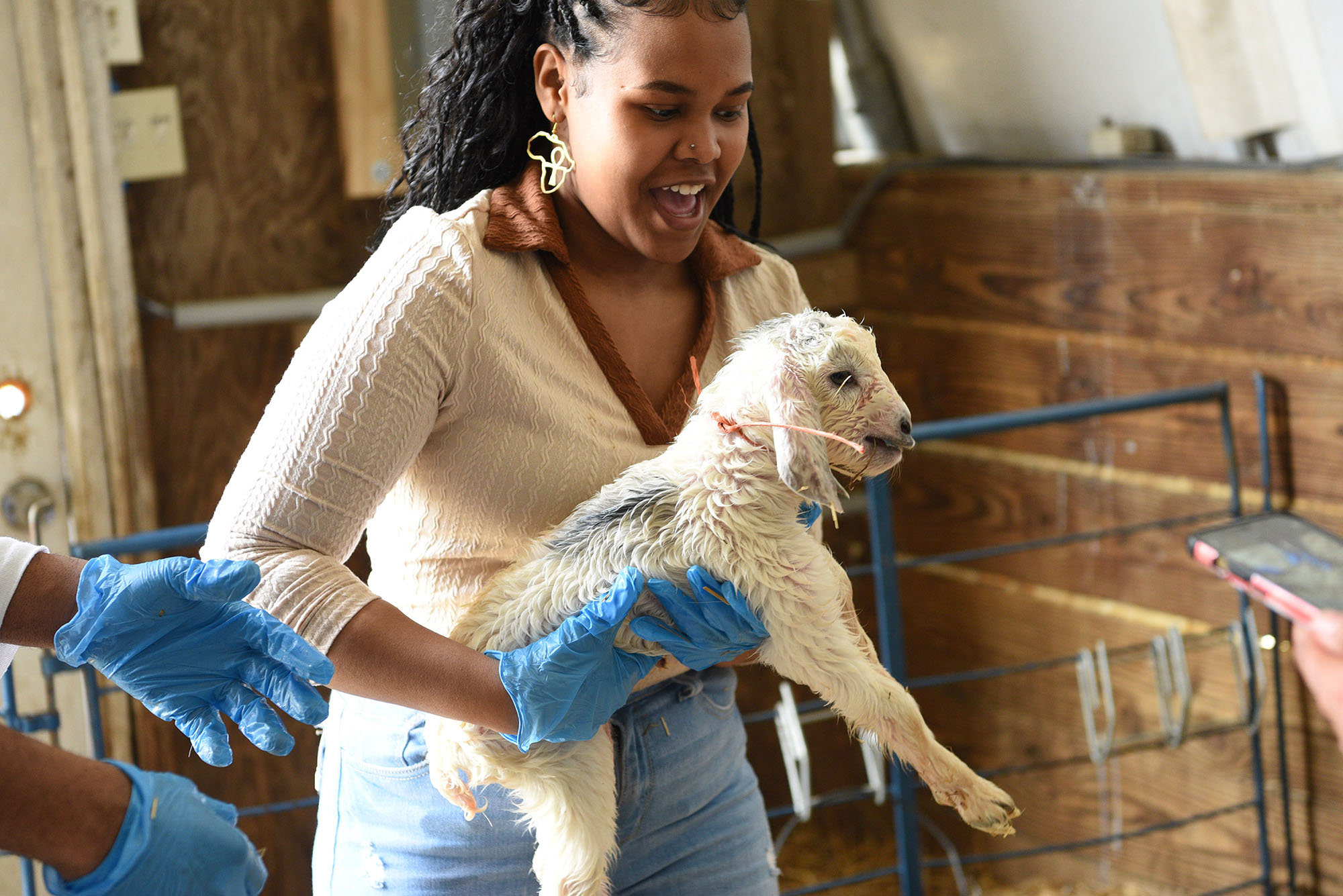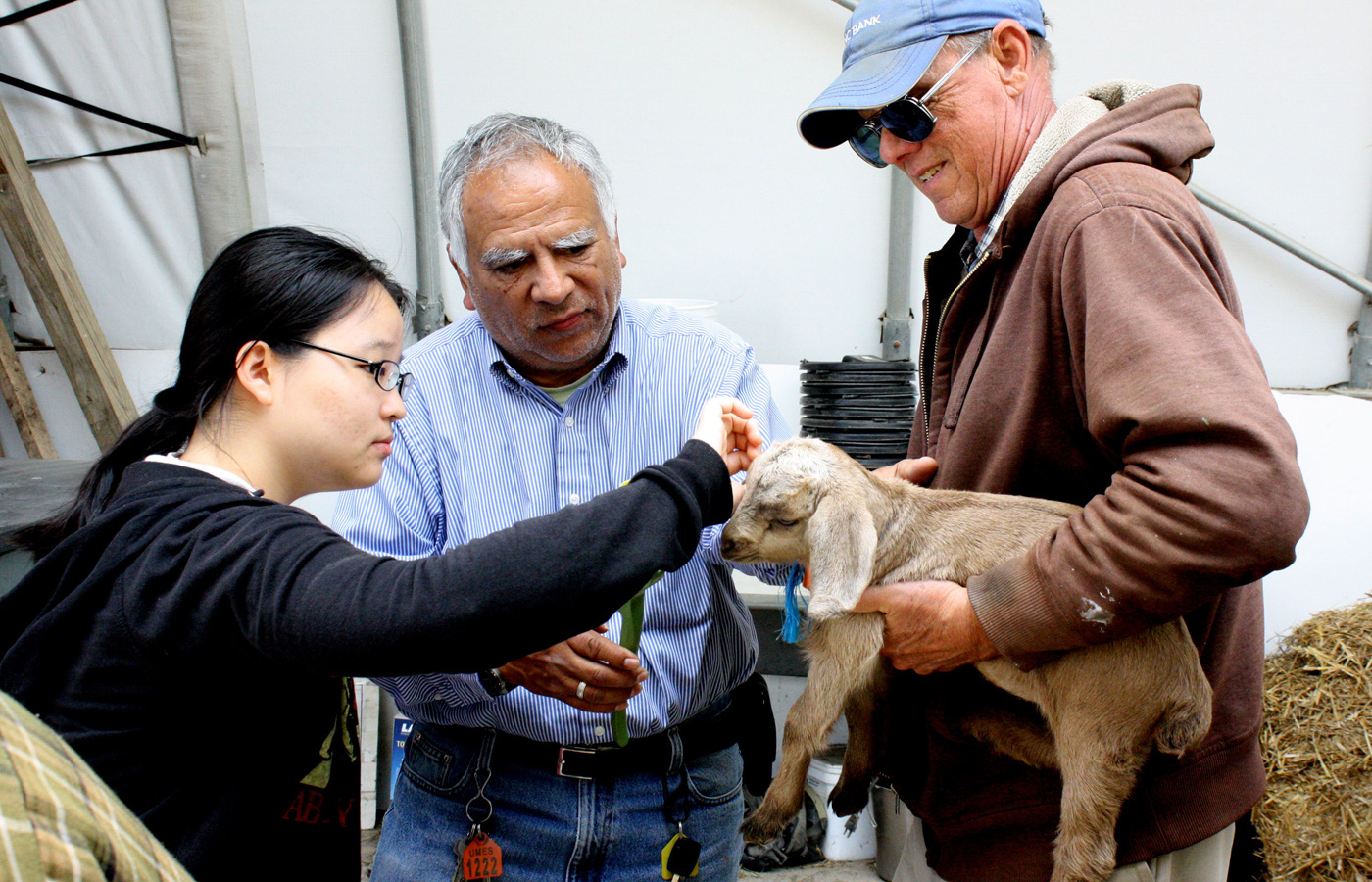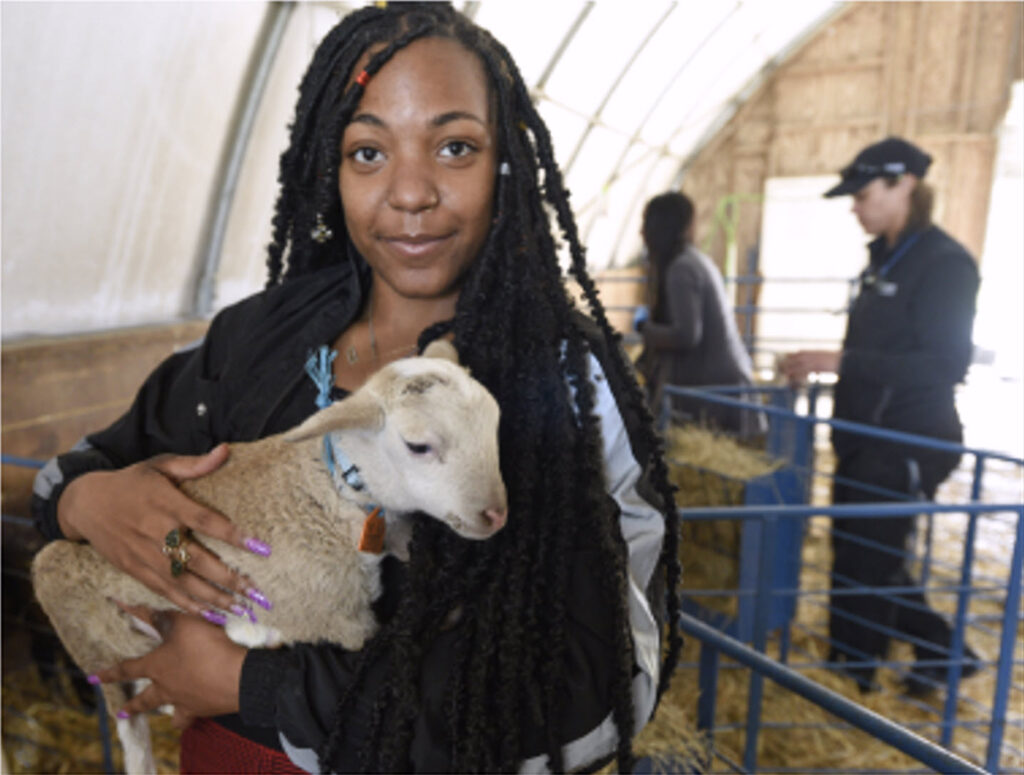
Institutional Animal Care and Use Committee (IACUC)
Welcome to the UMES IACUC!
In adherence to federal mandates, all research institutes are required to have established an Institutional Animal Care and Use Committee (IACUC), in order to conduct research, teaching, and testing activities using live, vertebrate animals.
- At this time, the IACUC review is utilized only for vertebrate laboratory animals
- If invertebrate laboratory species are to be used, the IACUC will review these procedures with the same scrutiny
The IACUC supervises and assesses all facets of the institution’s animal care and use program. This authority comes from 1) the Animal Welfare Act, and 2) the Health Research Extension Act (Public Health Service Policy).
- Two federal laws with regulations, policies, and guidelines
- Animal Welfare Act (AWA), amended as of 1985 to require an institutional oversight board to assure compliance with the Animal Welfare Regulations (AWR)
- Health Research Extension Act (HREA) requires research laboratories receiving funding from the Public Health Service (PHS) to establish animal care oversight committees

The IACUC ensures the animal protocols are in compliance with federal/state laws, regulations, and guidelines.
The IACUC committee is required by PHS policy and the AWARs to consist of at least 5 positions which include:
- Attending veterinarian with training in laboratory animal medicine, who has the authority and responsibility to oversee the institution’s animal welfare
- Research faculty with research animal experience/training
- Nonscientist whose primary concern is the ethics of research involving laboratory animals
- individual(s) unassociated with the institution except for serving on the IACUC committee
- Chairperson to lead the committee
UMES’s IACUC subscribes to the understanding that research aimed to expand the knowledge of human beings may require in vivo experimentation on non-human mammals.
Acknowledging the necessity of laboratory animal research, the IACUC strives to observe the principles established by the Institute of Laboratory Animal Resources’ Guide for the Care and Use of Laboratory Animals (8th edition).
- All procedures are to be designed and performed in the pursuit of human or animal health, to advance our knowledge, and/or the overall good of mankind
- Initial research will ensure that the appropriate species and number of animals are to be utilized
- Procedures will be conducted in a manner that avoids or minimizes discomfort, distress, and pain an animal may experience
- When applicable, appropriate sedation, analgesia, or anesthesia will be used
- Prior to the experiment commencing, humane and experimental endpoints will be established
- Animal husbandry protocols shall be directed and performed by trained personnel
- All experimentation on live animals will be performed by or under the direct supervision of qualified personnel
In addition, the IACUC adheres to The Principles of Humane Experimental Techniques in regards to laboratory animals/animal alternatives:
- Replacement of animals when possible
- Reduction of the number of animals
- Refinement of the procedure to minimize animal’s discomfort


Member Directory
- Dr. Victor Hsia, Chair, vhsia@umes.edu
- Dr. Kimberly Braxton, Attending Veterinarian, kabraxton@umes.edu
- Dr. Rondall E. Allen, Provost, Institutional Officer, reallen@umes.edu
- Mr. Earle Canter, Farm Manager
- Dr. Dia-eldin Elnaiem
- Ms. Janet Eke, Non-science member
- Ms. Amelia Potter
- Dr. Jocelyn Reader
- Dr. Bi-Dar Wang
- Ms. Tina Taylor, non-UMES member representing the community
- Dr. Joseph Pitula, ex-officio
- Dr. Eric May (alternate member)
- Dr. Jiabing Fan (alternate member)
- Dr. Enrique Escobar (alternate member)
- Ms. Caroline Maahs, LVT, Laboratory Animal Technician
IACUC Policies and Resources
Policy Governing Full Committee Review (FCR) and Designated Member Review (DMR)
Interim Guidelines for Risk-Based Occupational Health and Safety Policy

